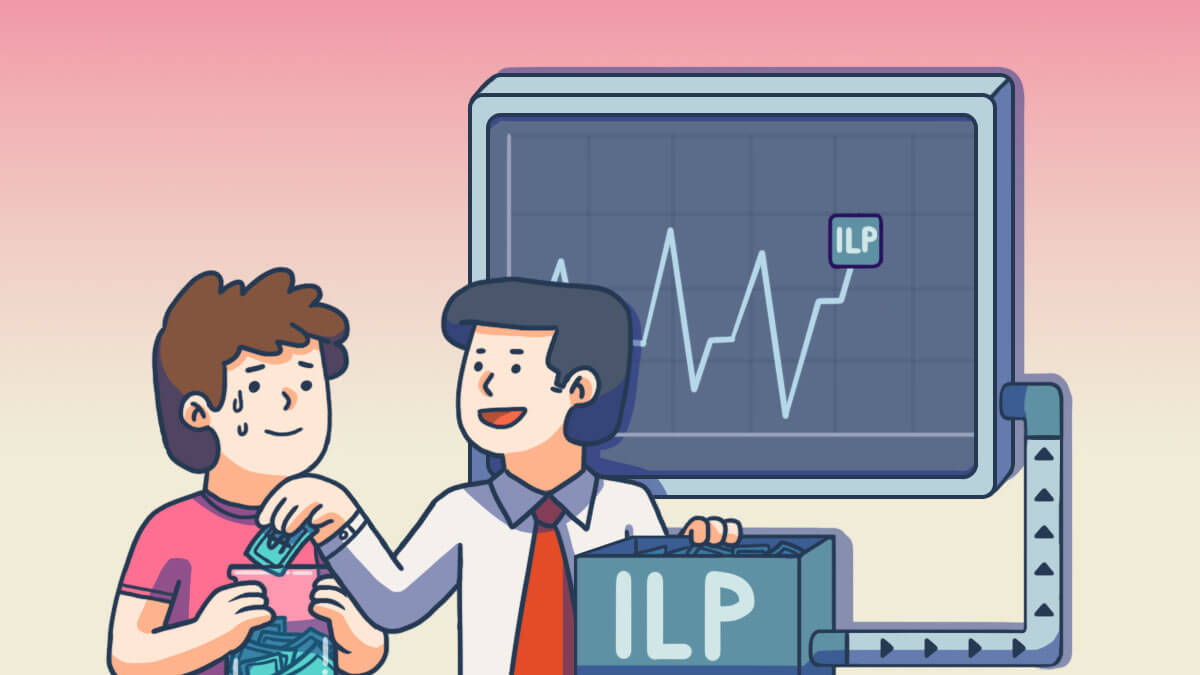Around the world, the cost of raising a child is becoming increasingly expensive. Here in Singapore – one of the world’s most expensive city for close to a decade -, it’s no secret that the cost-of-living crisis is contributing to our nation’s low resident fertility rate of 0.97. So, how much does it really cost to raise a child to adulthood in Singapore?
Parents are looking at a staggering 6-figure sum that includes essential expenses such as education, healthcare, and daily necessities. But, wait! If you are an aspiring parent, don’t be put off by this hefty cost. With proper financial planning, you can afford the cost of parenting. First, you’d need to figure out how much you need and Tiq’s here to show you what it takes to get there.
Cost of raising a child in Singapore (2024)
Pregnancy-related costs (~S$6,000 to S$24,000+)
The cost of raising a child varies, depending on you and your spouse’s age, physical conditions and financial ability, amongst other factors. For some, making a baby may require in-vitro fertilisation, which typically costs S$10,000 to S$20,000 per cycle. This will come under the pregnancy-related costs, which would differ greatly depending on whether you opt for public hospitals or private institutions.
Aspiring parents should budget for pre-pregnancy and pre-conception check-ups, and prenatal care such as doctor’s consultations, supplements and vitamins. Your delivery procedure (natural birth or C-section, etc.), ward type and length of stay should also be taken into consideration.
Other additional costs to consider include post-natal expenses. If you plan to hire a confinement nanny or domestic helper for your expanding household, you would need to set aside a budget of at least S$2,800. Here’s a list of common pregnancy-related costs:
| Cost guide for raising a child: Pregnancy-related costs | ||
| Items | Estimated cost | |
| Pre-pregnancy check-up (optional) | Varies from ~S$40 for a pap smear to ~S$1,600 for prenatal genetic assessments | |
| Pre-natal care | Doctor’s consultation | $30 to S$147 (monthly check-ups are recommended) |
| Pre-natal packages | from S$400 to S$800 (public) and up to S$2,000 (private) | |
| Delivery (Public hospitals vs private institutions) | S$5,000 to S$15,000 | |
| Confinement nanny (Based on a 28-day confinement period) | from S$2,800 to S$3,900 | |
In the scenario that a couple conceives naturally without going for pre-pregnancy check-up, the minimum pregnancy-related costs would be close to S$6,000 (pre-natal care: S$30 x 12 months + S$400, delivery cost: S$5,000) excluding the fees of a confinement nanny or domestic helper.
Baby’s 1st year expenses (~S$3,000 to S$37,500+)
Raising a child in the first year can be costly as you try to grasp and satisfy the changing needs of your new-born. Besides creating a safe and suitable home environment (think baby proofing and equipment), some common expenses include formula milk, diapers, vaccinations, and regular check-ups.
The estimated cost of raising your child in his/her first year is estimated to be at least S$3,000 minimally (excluding child care fees).
Being a stay-at-home parent can help your household to save significantly, but it also means a loss of income. Hence, parents should discuss and consider the best childcare option that suits your family needs, be it sending your child to infant care, having family members to help or hiring a nanny or domestic helper.
This is a good time to consider health insurance for your baby, in case of unexpected medical expenses. Having an insurance savings plan that can provide yearly cash benefits and life protection would also make sense.
Tiq CashSaver is a capital guaranteed endowment plan that offers guaranteed yearly cash benefits and non-guaranteed yearly cash benefits, along with a lump sum payout at maturity1. The best part? Parents have flexibility to start saving from as low as S$125 a month2. There is even a 60-day extension to your policy’s grace period in difficult times3 such as retrenchment. Learn more.
| Items | Estimated monthly cost | Estimated monthly cost | |
| Diapers | S$50 to S$80 | S$600 to S$960 | |
| Formula milk (for month 07 to 12; assumes baby to be breastfed for the 1st 6 months) |
S$100 to S$200 | S$600 to S$1,200 | |
| Baby gear (one-time expenses) | Crib | – | S$100 to S$1,235 |
| Stroller | – | S$100 to S$1,269 | |
| Baby carrier | – | S$60 to S$399 | |
| Car seat | – | S$150 to S$300 | |
| Cleaning products | Baby wipes | $12 to S$24 (Assumed usage: 10pc/day at $0.04 to $0.08 /pc) |
S$144 to S$288 |
| Nursery and toy disinfectants | S$12 to S$24 per 500ml | S$144 to S$288 | |
| Milk bottle steriliser | – | S$50 to S$300 | |
| Clothing and toys | – | S$500 to S$1,000 | |
| Vaccination | – | S$0* to S$2267.20 | |
| Miscellaneous (e.g., doctor consultations) | – | S$500 | |
| Infant care/nanny(from month 2 to 12) | S$1,000 to S$2,500 | S$11,000 to S$27,500 | |
*Singaporean babies may be eligible to receive fully subsidised vaccinations.
Estimated expenses for age 1 to 6 years (from ~S$10,400 per year)
The cost of raising a child between the ages of 1 to 6 are typically spread across childcare, education, healthcare, and other essential needs. During this period, parents are likely to incur expenses of S$10,400 minimally per year if you send your child for half-day childcare, and the occasional enrichment or activity classes such as swimming or learning a new language. That’s approximately S$866 per month.
This cost does not include miscellaneous costs such as diapers or cleaning products specifically for young children (mentioned earlier). Parents are well aware that the early years of child development are crucial to a junior’s health, wellbeing, and his/her future path in life.
Between the ages of 1 to 6, your child is also at his/her most adorable stage, which may make it easy to overindulge your child. It may be tempting to travel frequently with discounted child fares or purchase the latest toys or gadgets for your little one. However, it is important to save for your child’s future education or a rainy day.
| Cost guide for raising a child: age 1 to 6 years | ||
| Items | Estimated monthly cost | Estimated total cost |
| Infant care/nanny(from month 13 to 18) | S$1,000 to S$2,500 | S$6,000 to S$15,000 |
| Childcare (from month 19 to age 06) | S$500 to S$2,700 | S$6,000 to S$32,400 / year |
| Food & nutrition | S$200 to $400 | S$2,400 to S$4,800 / year |
| Regular check-ups & vaccinations | – | S$500 to S$1,000 / year |
| Enrichment classes & activities (optional) | – | S$1,000 to S$2,000 / year |
| Miscellaneous(clothing, toys, books) | – | S$500 to S$2,000 / year |
Estimated expenses for age 7 to 18 years (from ~S$8,800 per year)
Reaching Primary school is a milestone for both parents and child! Did you know that Singaporean citizen students do not need to pay monthly school fees? That’s provided if your child is in a government or government-aided school. At secondary school and pre-university, monthly school fees are priced at S$5 and S$6 respectively.
During this period, Singaporean parents can take a slight breather with the almost complimentary school fees for your child, and channel spare money to save or invest for your child’s tertiary education.
Taking into consideration expenses such as tuition, enrichment classes, and school essentials, parents can set aside an estimated budget of S$ 8,800 per year excluding food and other miscellaneous expenses.
| Cost guide for raising a child: age 7 to 18 years | ||
| Items | Estimated monthly cost | Estimated total cost |
| School essentials (Textbooks, uniforms, bags, stationery, CCA-related costs, etc.) | – | S$500 to S$1,500 / year |
| Pocket money | S$100 to S$250 | S$6,000 to S$32,400 / year |
| Personal learning device (For Secondary school students) | – | S$1,000 to S$1,500 |
| Tuition & enrichment classes | S$150 to S$500 | S$1,800 to S$6,000 / year |
| Family travel and leisure | – | S$500 to S$2,000 / year |
Estimated expenses for tertiary education (from ~S$22,500)
Close to a decade ago, a Value of Education survey series by global bank HSBC found that 52% of parents in Singapore are willing to go into debt to fund their child’s university or college education. In fact, Singapore parents spent an average of S$21,000 a year on their child’s university education then, which was more than twice the global average.
Fast forward to recent times, most parents in Singapore expect their child to minimally have a university degree or higher. If you plan to send your child to university, here’s the estimated costs for reference.
| Cost guide for raising a child: Tertiary education for Singaporeans | |||
| Where to study | Estimated tuition fees | Estimated living expenses | Estimated total cost* |
| Autonomous university in Singapore (Nanyang Technological University Singapore, National University Of Singapore, Singapore Institute Of Technology, Singapore Management University, Singapore University Of Social Sciences, Singapore University Of Technology And Design) | S$7,500 to S$12,700 after subsidies / year | S$4,800 to S$18,000 / year | S$36,900 to S$92,100 |
| Australia | A$20,000 to A$45,000 / year (S$17,400 to S$39,000) | A$16,800 to A$30,000 / year(S$14,708 to S$26,265) | S$96,324 to S$195,795 |
| United Kingdom | £13,000 to £40,000 / year (S$22,147 to S$68,144) | £12,000 to £5,600 / year(S$20,443 to S$26,576) | S$127,770 to S$284,160 |
| United States | S$31,000 to S$55,200 / year | S$12,000 to S$30,000 / year | S$129,000 to S$255,600 |
*Estimated total costs based on a 3-year tertiary education.
As seen in the above table, local tuition fees cost between S$7,500 to S$12,700 after subsidies per year, depending on course, whereas studying in the United States as an international student would cost between S$31,000 to S$55,200 annually. Courses typically range from 3 to 4 years, which means that parents need to fork out at least S$22,500 for a 3-year course in a local university. That does not include allowances or other living expenses such as accommodation on campus.
While starting in a local autonomous (AU) university would be most cost effective, current trends show that nearly 8 in 10 Singaporean students are heading overseas for their higher education. If you plan to sponsor your child fully on his overseas study including living expenses, you’d need to set aside at least S$100,000 for him/her to study in Australia and much more if s/he decides to study in the United Kingdom or the United States.
Total costs of raising a child in Singapore in 2024
Based on our estimation, parents would need to fork out at least S$227,600 to raise a child to adulthood including local university education. This conservative figure does not take inflation into account. For example, MAS Core Inflation and CPI-All Items inflation are projected to come in at an average of 2.5 to 3.5% for the year 2024 as a whole.
That means parents can expect to pay more for the same items each year. If your income is rising in tandem, that’s all well. Otherwise, you will need to be more money-savvy and find effective solutions to maximise your limited funds.
Firstly, Singaporean parents should definitely take advantage of the Baby Bonus and eligible government subsidies. Next, you may want to consider Tiq CashSaver.
From just S$125 a month, you can start saving with this capital guaranteed endowment plan, and receive a steady flow of supplementary income4 from the end of your 2nd policy year. Alternatively, you may accumulate your yearly cash benefit to further grow your savings at the prevailing interest rates5.
Parents would appreciate the flexibility of the plan, and how you can place the plan under your child’s name while you remain insured against the unexpected. Future premiums will be waived should you become totally and permanently disabled6. Learn more.
Alternatively, if you have a higher risk appetite and wish to grow your savings at a potentially higher rate of return, S$1,000 is all you need to start investing with Tiq Invest – a hassle-free digital Investment-Linked Insurance Plan (ILP) combining life protection and wealth accumulation. You can also set up regular top-ups from S$100 monthly as a dollar-cost averaging strategy to help spread out your investment risks and ride through volatility so that you can better gain in the long run.
The 6-figure cost of raising a child in Singapore may look intimidating to some, but is there really a price tag to life? Having a child can bring inexplicable satisfaction to life in spite of the ups and downs of being a parent. So, good luck to all parents and parents-to-be! Remember, children are the hope of the world, and there is no better time than now to start saving or investing for your child.
Been there, done that? Parents who are planning to have a second child may want to read this.
[End]
1 Upon maturity if the policy is still in force, the maturity benefit payable is the sum of the following: a) the guaranteed maturity value; and b) performance bonus (if any); and c) yearly cash benefit and non-guaranteed yearly cash benefit accumulated with us (if any); less any amount owing to us.
All bonuses are not guaranteed. This is a participating plan and actual amounts may vary depending on the performance of the participating fund that the plan is invested.
2 Based on a premium term of 5 years and yearly payment of S$1,500 (rounded to the nearest dollar).
3 The Extended Grace Period Option benefit can be exercised two (2) times if you meet with the following events: (a) You are retrenched and remained unemployed for at least thirty (30) consecutive days before reaching age 65; or (b) if you are self-employed and are issued a hospitalisation leave for sixty (60) days or more by a Singapore hospital. Please refer to the policy contract for the full terms and condition.
4 Receive a guaranteed yearly cash benefit starting from the end of the second policy year until the policy matures, as long as the life insured is alive and the policy is in force. The guaranteed yearly cash benefit is 3.9% p.a. of the face value, while the non-guaranteed yearly cash benefit is 2.5% p.a. of the face value based on the illustrated investment rate of return of 4.25% p.a. In comparison, at an illustrated investment rate of return of 3% p.a, the non-guaranteed yearly cash benefit expected to be adjusted downwards depending on the future outlook of the Participating Fund. Please refer to the policy illustration for the non-guaranteed yearly cash benefit amount at the investment rate of return of 3% p.a and 4.25% p.a respectively. The two rates are used purely for illustrative purposes and do not represent upper and lower limits of the investment performance of the Participating Fund.
5 The guaranteed and non-guaranteed yearly cash benefits accumulated with us will be at the prevailing interest rate. The prevailing interest rate is non-guaranteed and we may change the interest rate at any time by giving you thirty (30) days’ written notice.
6 The Total & Permanent Disability (TPD) Premium Waiver Benefit waives all future premiums on the policy for the remaining premium term if you become totally and permanently disabled (on or before reaching the policy anniversary when you attain age 86) during the premium term while the policy is in force.
Please refer to Tiq CashSaver Product Page for full Terms and Conditions.
Information is accurate as at 10 October 2024. These policies are underwritten by Etiqa Insurance Pte. Ltd. (Company Reg. No. 201331905K).
These policies are protected under the Policy Owners’ Protection Scheme which is administered by the Singapore Deposit Insurance Corporation (SDIC). Coverage for your policy is automatic and no further action is required from you. For more information on the types of benefits that are covered under the scheme as well as the limits of coverage, where applicable, please contact us or visit the Life Insurance Association (LIA) or SDIC websites (www.lia.org.sg or www.sdic.org.sg).
Tiq Invest is an Investment-linked Plan (ILP) which invest in ILP sub-fund(s). Investments in this plan are subject to investment risks including the possible loss of the principal amount invested. The performance of the ILP sub-fund(s) is not guaranteed and the value of the units in the ILP sub-fund(s) and the income accruing to the units, if any, may fall or rise. Past performance is not necessarily indicative of the future performance of the ILP sub-fund(s).
A product summary and product highlights sheet(s) relating to the ILP sub-fund(s) are available and may be obtained from us via www.tiq.com.sg/product/tiqinvest. A potential investor should read the product summary and product highlights sheet(s) before deciding whether to subscribe for units in the ILP sub-fund(s).
As buying a life insurance policy is a long-term commitment, an early termination of the policy usually involves high costs and the surrender value, if any, that is payable to you may be zero or less than the total premiums paid. You should seek advice from a financial adviser before deciding to purchase the policy. If you choose not to seek advice, you should consider if the policy is suitable for you. This advertisement has not been reviewed by the Monetary Authority of Singapore.
Tiq by Etiqa Insurance Pte. Ltd.
A digital insurance channel that embraces changes to provide simple and convenient protection, Tiq’s mission is to make insurance transparent and accessible, inspiring you today to be prepared for life’s surprises and inevitabilities, while empowering you to “Live Unlimited” and take control of your tomorrow.
With a shared vision to change the paradigm of insurance and reshape customer experience, Etiqa created the strong foundation for Tiq. Because life never stops changing, Etiqa never stops progressing. A licensed life and general insurance company registered in the Republic of Singapore and regulated by the Monetary Authority of Singapore, Etiqa is governed by the Insurance Act and has been providing insurance solutions since 1961. It is 69% owned by Maybank, Southeast Asia’s fourth largest banking group, with more than 22 million customers in 20 countries; and 31% owned by Ageas, an international insurance group with 33 million customers across 16 countries.
Discover the full range of Tiq online insurance plans here.








